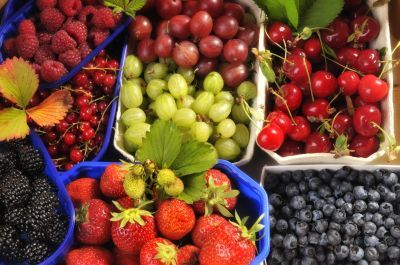German consumer guide urges sustainable living, eating

Your support helps us to tell the story
From reproductive rights to climate change to Big Tech, The Independent is on the ground when the story is developing. Whether it's investigating the financials of Elon Musk's pro-Trump PAC or producing our latest documentary, 'The A Word', which shines a light on the American women fighting for reproductive rights, we know how important it is to parse out the facts from the messaging.
At such a critical moment in US history, we need reporters on the ground. Your donation allows us to keep sending journalists to speak to both sides of the story.
The Independent is trusted by Americans across the entire political spectrum. And unlike many other quality news outlets, we choose not to lock Americans out of our reporting and analysis with paywalls. We believe quality journalism should be available to everyone, paid for by those who can afford it.
Your support makes all the difference.The German Council for Sustainable Development has updated its Sustainable Shopping Basket (published in 2003), a guide developed by the Institute on Market, Environment and Society in Hanover to help consumers make more informed purchasing decisions.
The updated guide is intended to influence sustainability by encouraging consumers to make better choices in all lifestyle sectors, particularly in their selection of food.
Published in September and available in English, the revised report stresses that a healthy diet is a sustainable one, and that a typical shopping basket should be filled with: healthful food products; organic products; locally grown seasonal fruits and vegetables; fair-trade products; and products packaged in recyclable containers.
According to the guide, a healthy diet should consist of vegetables and little meat, as much for health reasons as for environmental ones in a global attempt to reduce greenhouse gas emissions.
The guide also emphasizes the advantages of organic farming because it doesn't rely on chemical or synthetic fertilizers and because organically bred livestock are humanely raised. And more jobs are created in organic farming than in conventional farming, according to the guide.
The 80-page booklet even sheds light on sometimes confusing issues such as: Which is the most sustainable choice, organic produce flown in from across the globe, or conventional produce that might come from around the corner?
According to the guide, shoppers should change their routines and begin reading the labels again: not only for nutrional information, but for sustainability information as well.
http://www.nachhaltigkeitsrat.de/uploads/media/Brochure_Sustainable_Shopping_Basket_September_2009.pdf
Join our commenting forum
Join thought-provoking conversations, follow other Independent readers and see their replies
Comments